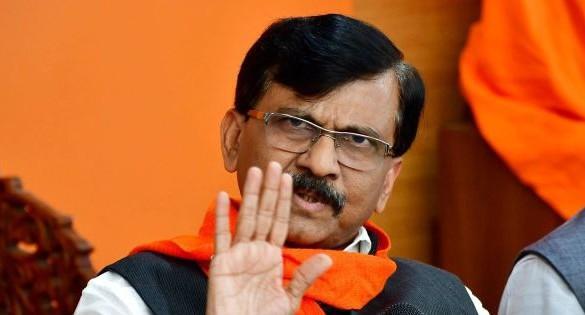
Not against Hindi language, just its imposition in schools: Raut
The debate on language and its imposition in educational institutions is a contentious issue that has been plaguing the country for a long time. Recently, the Shiv Sena (UBT) leader, Sanjay Raut, made a statement that has sparked a fresh round of controversy. Raut clarified that his party’s fight is not against the Hindi language, but only against making it a compulsory third language in primary schools in Maharashtra.
Raut’s statement comes at a time when the issue of language imposition has been gaining momentum, particularly in the southern states of India. The recent reunion between Uddhav Thackeray and Raj Thackeray, two prominent leaders of the Shiv Sena, was welcomed by Tamil Nadu Chief Minister MK Stalin, who saw it as a move to “defeat Hindi imposition.” However, Raut’s clarification has put a spin to this narrative, emphasizing that the Shiv Sena’s opposition is not against the Hindi language itself, but against its forced imposition in educational settings.
The debate on language imposition is a complex one, with multiple stakeholders having their own perspectives on the issue. While some argue that Hindi should be promoted as a unifying language for the country, others believe that it should be left to individual states to decide on the language policies. The Shiv Sena’s stance, as clarified by Raut, seems to fall under the latter category.
Raut’s statement has been seen as an attempt to clear the air and distance the Shiv Sena from Stalin’s comments. By emphasizing that the party’s fight is not against the Hindi language, but only against its imposition in schools, Raut is trying to convey that the Shiv Sena is not opposed to the language being spoken outside educational settings. This is a significant clarification, as it suggests that the party is not opposed to the idea of promoting Hindi as a cultural or national language, but only opposes its forced imposition in educational institutions.
The issue of language imposition is a sensitive one, particularly in multi-lingual and multi-cultural societies like India. The country has a diverse linguistic landscape, with over 22 officially recognized languages and numerous dialects. The imposition of a single language, particularly one that is not native to a region, can be seen as an attempt to marginalize other languages and cultures.
In the context of Maharashtra, the imposition of Hindi as a compulsory third language has been a contentious issue. Many have argued that this move is an attempt to erode the cultural identity of the state and promote the interests of the Hindi-speaking elite. Raut’s statement suggests that the Shiv Sena is opposed to this move, and instead wants to promote the use of local languages and dialects in educational institutions.
The Shiv Sena’s stance on language imposition is also seen as a reflection of its broader political agenda. The party has historically been associated with the Marathi identity and has often taken a strong stance on issues related to the state’s cultural and linguistic heritage. Raut’s statement can be seen as an attempt to appeal to this sentiment and build a narrative around the Shiv Sena’s commitment to protecting the cultural identity of Maharashtra.
However, not everyone is convinced by Raut’s clarification. Some have argued that the Shiv Sena’s opposition to the imposition of Hindi is motivated by a desire to protect the Marathi language and culture, rather than a genuine commitment to promoting linguistic diversity. Others have pointed out that the party’s stance is inconsistent, given that it has often promoted Hindi as a national language in the past.
Despite these criticisms, Raut’s statement has the potential to shift the narrative around the language imposition debate. By emphasizing that the Shiv Sena’s fight is not against the Hindi language itself, but only against its imposition in schools, Raut is trying to create a more nuanced and complex narrative around the issue. This narrative acknowledges the importance of promoting Hindi as a national language, while also recognizing the need to respect the cultural and linguistic diversity of different regions.
In conclusion, Sanjay Raut’s statement has added a new layer of complexity to the language imposition debate. While some may see it as an attempt to clear the air and distance the Shiv Sena from Stalin’s comments, others may view it as a calculated move to appeal to the Marathi sentiment and promote the party’s political agenda. Regardless of one’s perspective, Raut’s statement highlights the need for a more nuanced and inclusive approach to language policy, one that recognizes the importance of promoting linguistic diversity and respecting the cultural identities of different regions.






